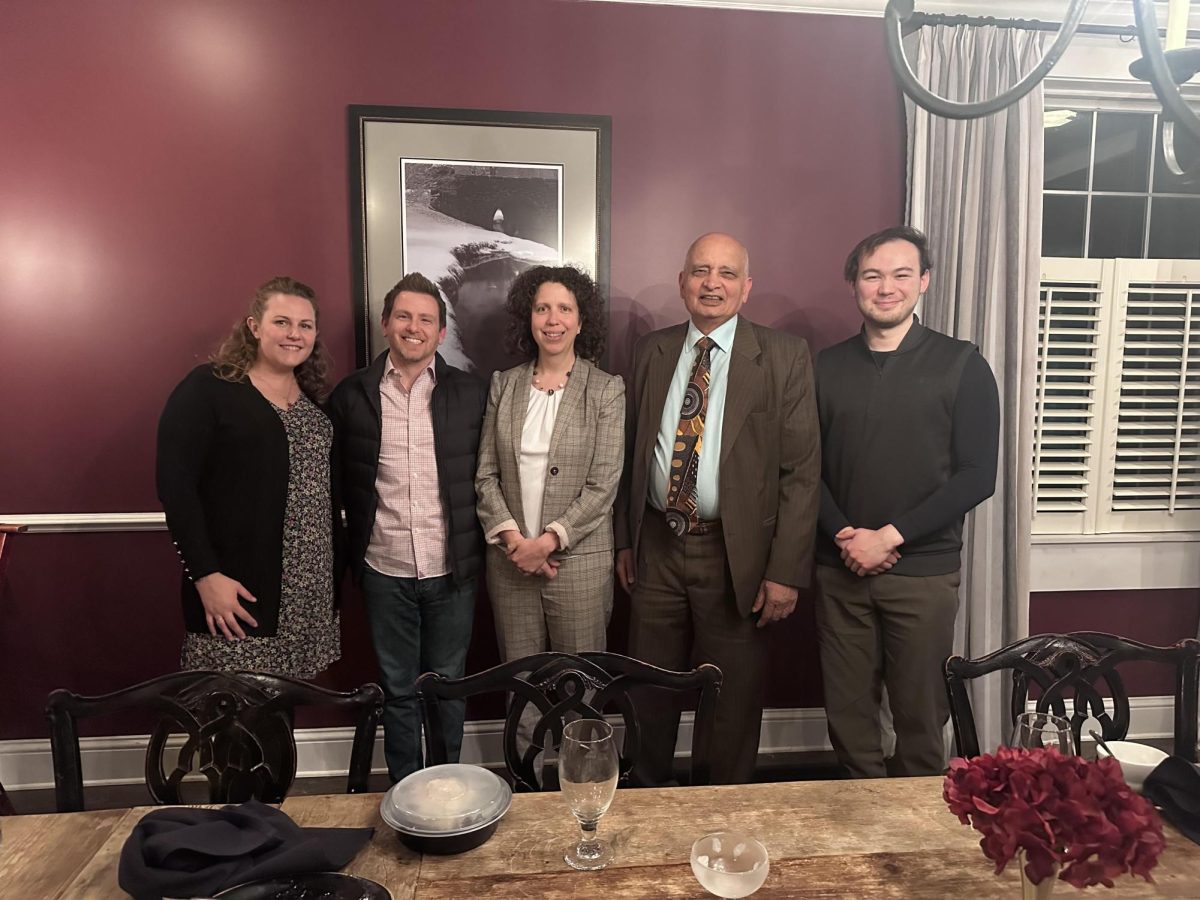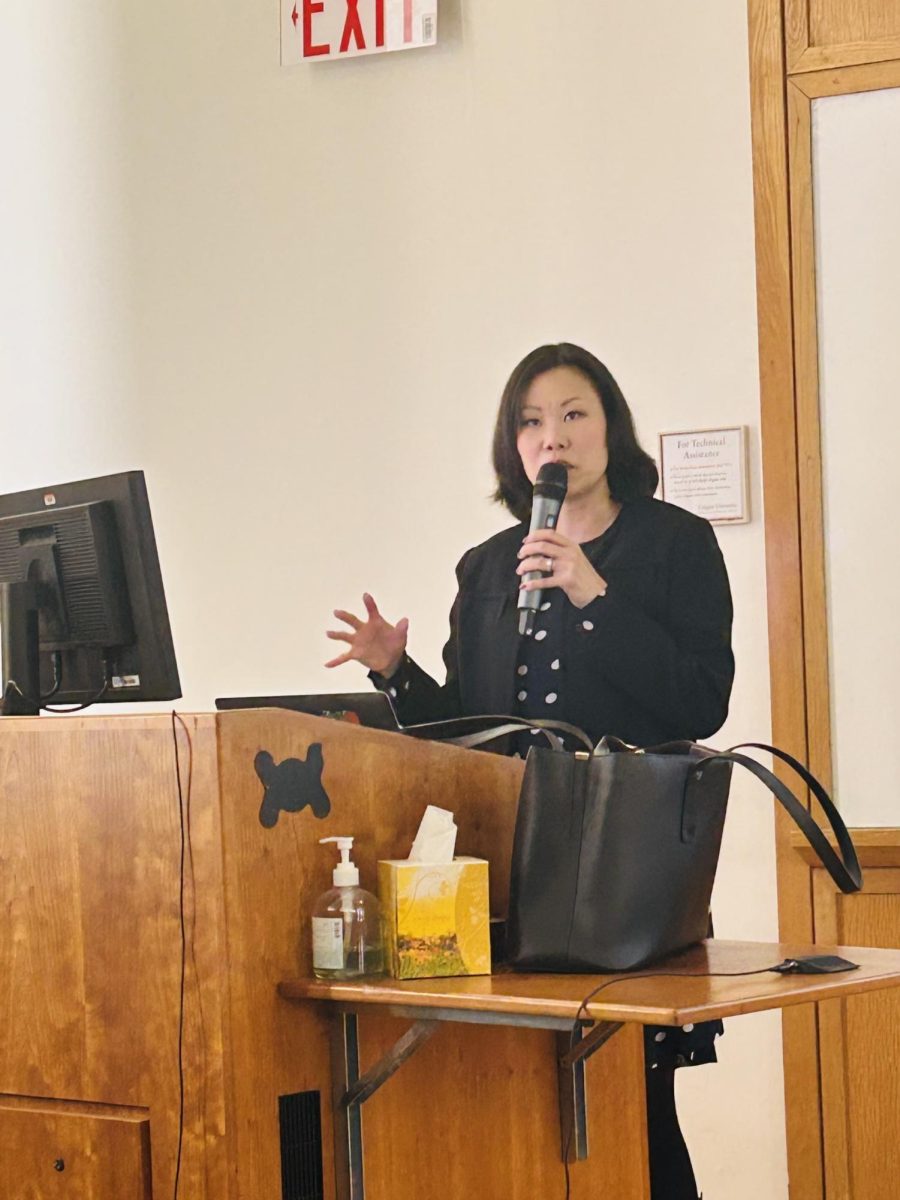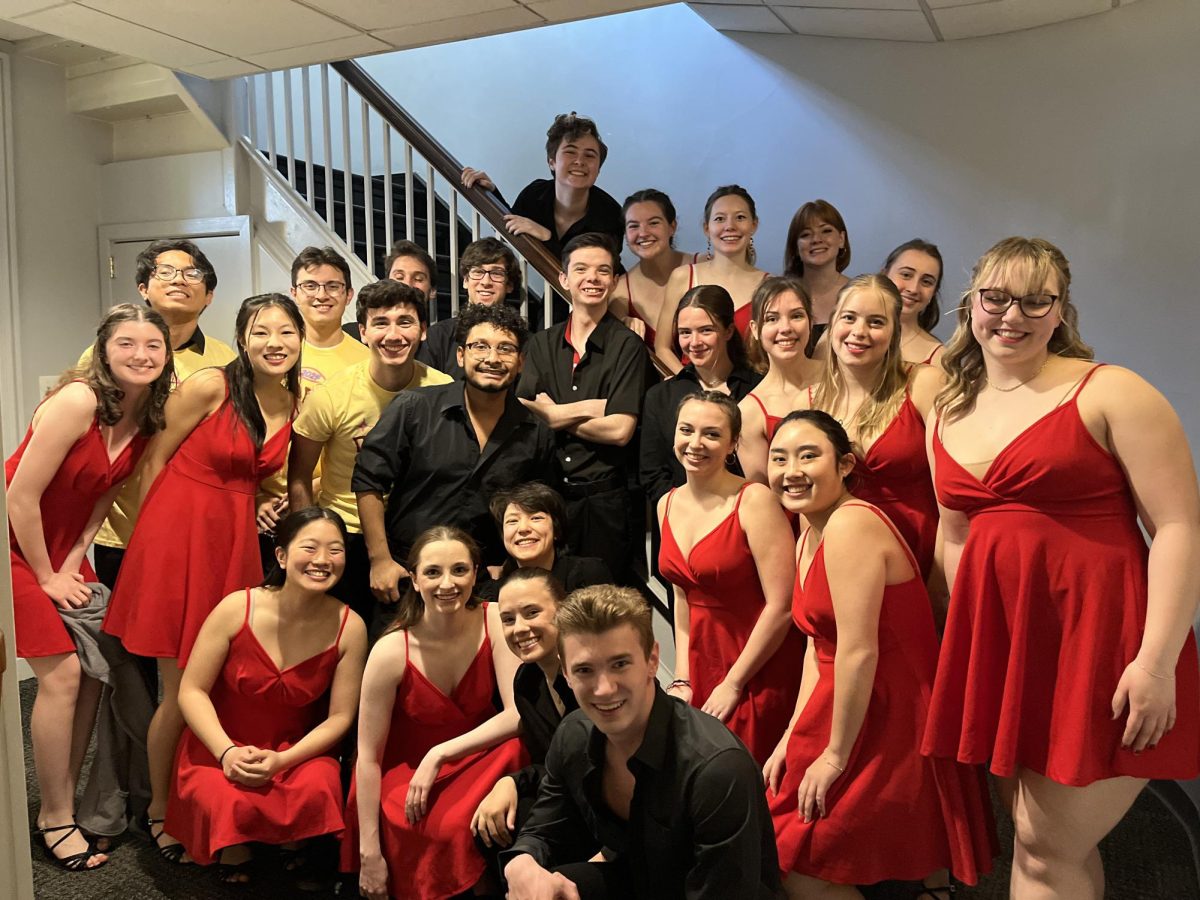The Colgate University Lampert Institute for Civic and Global Affairs’ Non-Resident Fellow for 2023-2024, Michael O’Hanlon, gave a talk on the history of United States defense strategies on Tuesday, April 9, in Lathrop Hall. O’Hanlon is also a director of research in the foreign policy department at the Brookings Institution, where he specializes in U.S. defense strategy, the usage of military force and national security policy.
The lecture focused on the evolution of military force and defense strategies through the history of the U.S. O’Hanlon described the strategies the United States employed during major global conflicts, such as World War I, World War II and the Cold War. O’Hanlon looked further at the tactics being used today and how America’s approach to military action has evolved throughout time. Lastly, the speaker held a Q&A section, where students were able to ask questions about the topic of military and military defense.
O’Hanlon first discussed the largely held belief that Americans are a mostly peaceful force throughout world history, one that, for the most part, wanted freedoms and to be left alone.
“It’s just not true. We have never been disinterested in world affairs, and we certainly have never been pacifists or even peaceful,” O’Hanlon said. “New York State might have been one of the original thirteen colonies, but we then quintupled in size over the next century. We did not do most of that through just negotiation.”
O’Hanlon then explored military power and defense strategies of the modern era, touching upon America’s main tenets of military force.
“We usually try to have the capability of doing more than one thing at a time — the idea being [that] you don’t want to have all the military power required for one operation because if you do, and then you get into that operation, other world forces will see you’re strategically and militarily exposed,” O’Hanlon said. “So for a while, we tried to have a two war capability, but we’ve gone away from that as we saw how difficult it was. We’ve sort of gone towards what I call ‘one war plus plus plus’ that we use to size our military today. One big, major war with our allies helping, while we deter the other great powers we aren’t fighting.”
Following this, O’Hanlon further discussed the two penchants of the American military force that we see today and have seen throughout history.
“We Americans have two tendencies in our history. I’ve already discussed one, which is to be very assertive. Another tendency, however, is to try to stay out of Eurasian affairs for long periods of time until we can’t,” O’Hanlon said. “There’s a part of our national psyche that likes to say, ‘Let’s just go back to North America, where the living is good, the resources are plentiful, the oil and gas are flowing. Let’s just let them figure it out.’”
Junior and Lambert Scholar Danielle Silverman attended the talk and found it to be a valuable insight into the history of U.S. defense and how the country’s approach has changed through time.
“The talk was structured into sort of four parts, with each section being based in a different time in our country’s history, from 1775 to the present. [O’Hanlon] talked about grander, more broad strategies at the time and then focused in on specific practices and tactics used by leaders and armies,” Silverman said. “Something I found really interesting was how we are seeing the cyclical nature of defense strategies, with our strategy now being one that shares a lot of similarities to how we handled conflicts during the Cold War. Going through history like that really puts things all in perspective and lets you draw some interesting conclusions.”
Senior Zarah Bari also attended the talk as a Lampert Scholar and commented on why she thinks talks like this are crucial for community learning and understanding.
“I think it’s so important to look back at how conflicts are caused and solved throughout history. It’s sort of like that saying, ‘Those who don’t know their own history are doomed to repeat it,’” Bari said. “When looking at how to approach a current conflict or war, it’s so important to look back on history and understand what went wrong, what worked and which approach is the best to take when applying it to today. […] Talks like this remind us of how important that resource of history is.”
Silverman commented further on how it was interesting to focus on this perspective of America.
“I think the talk offered a great way to look at America in a more global perspective. Looking from a military perspective, the United States is definitely something of a global superpower, and how we choose to engage with conflicts can really turn the tides,” Silverman said. “It’s really important to understand how much power the United States wields and how it can be used effectively.”
Lastly, during the concluding section, attendees were prompted to ask O’Hanlon any questions regarding the U.S. military. Many of the questions revolved around new technologies, like artificial intelligence (AI) and space travel, and how these changes would impact military strategy moving forward. Bari found these topics particularly engaging.
“It was something I hadn’t really focused too much on before,” Bari said. “With AI, possibilities in war completely skyrocket. Using technology as a significant weapon has a lot of potentially dangerous and scary potential, and it will be really interesting to see where the world goes with that. With leaders starting to look more into space, as well, it seems like we are on the verge of some really big changes with not only how wars are waged and fought, but even just how our society works and functions.”
Michael O’Hanlon’s talk challenged all in attendance to consider not just the history of United States defense strategies, but also grapple with the future of military tactics in our ever-evolving world.











